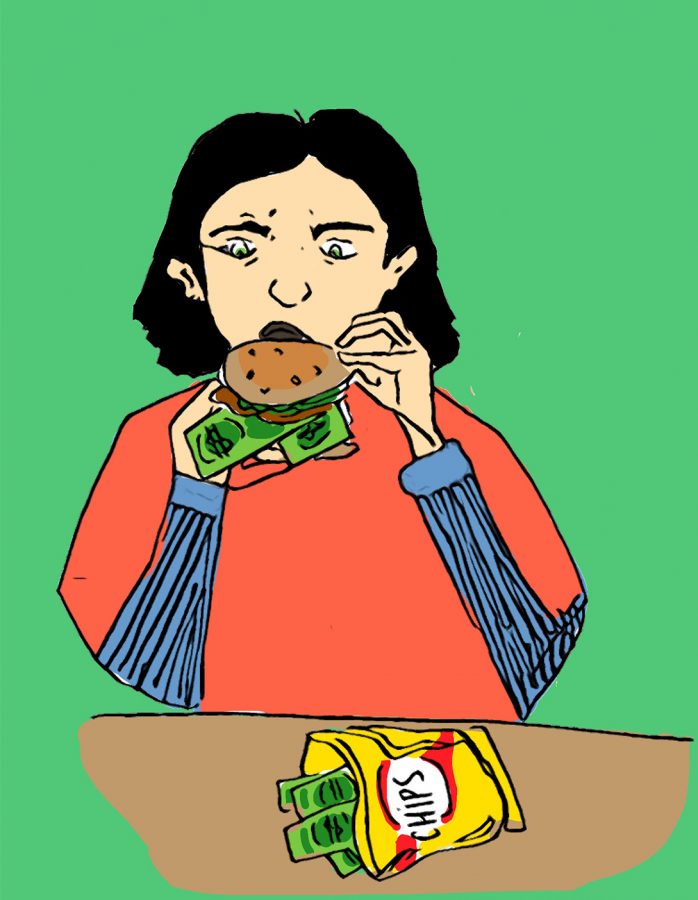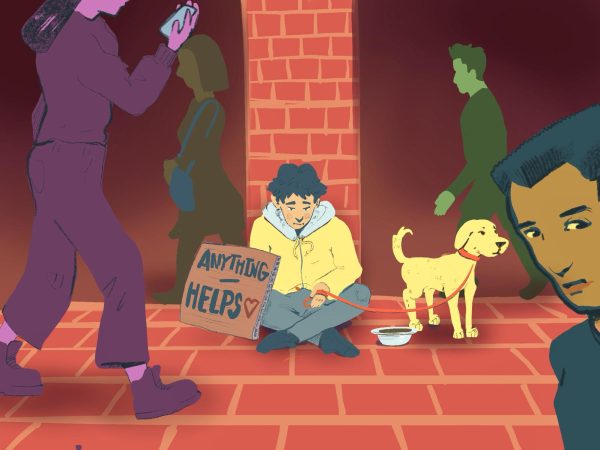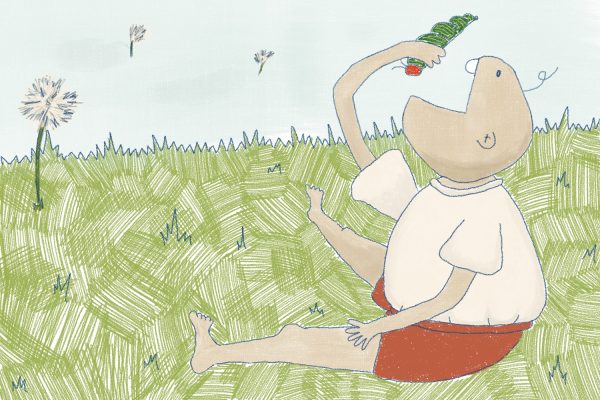Food insecurity needs solutions
October 10, 2018
College life is often hectic and stressful. Between studying, a social life, work and extracurriculars, students shouldn’t have to worry about their next meal.
An April 2018 study from the Wisconsin Hope Lab found that 36 percent of university students in the U.S. were food insecure.
Hunger on college campuses is an issue that requires more discussion and awareness than it currently gets.
At UVM, the dining options are expensive and often difficult for students to navigate, making food insecurity a real and relevant issue.
We have a points system, which allots 1,425 points and 25 meal swipes per semester. Students pay $4,266 per year for this plan, according to the UVM website, and each point is equivalent to one dollar.
For a 15-week-long semester, this averages out to around 14 points per day. With options like $9.99 paninis and quinoa burgers at Brennan’s, this isn’t enough for three square meals a day.
While there are less expensive options, they’re often not as filling or as healthy.
The other option, unlimited dining, costs less money at $4,122 for a year, but lacks the portion control that points provide and is not as easy to schedule meals around.
While points locations like the Redstone Market are open until 10 p.m., Simpson closes at 8 p.m., making it difficult for students to find time to eat.
When students move off campus, the issue of what to eat becomes more challenging for some.
Living off campus makes it more difficult to plan meals, so students are often left with no choice but to buy food on campus between classes.
These students have to rush in to the nearest UVM dining facility and pay the price of a meal out of pocket.
And for those without a car or much free time, buying groceries is a difficult, but necessary task.
We can start to fix food insecurity on campus by opening up the conversation.
We need to erase the stigma; there’s no shame around struggling to find food to eat because it’s such a widespread issue.
Supporting students who are food insecure can be something small like giving away an extra swipe in the dining hall, or as large as organizing a food drive.
But the issue won’t go away without action. Instead, we need to open a dialogue and initiate change.
Staff editorials officially reflect the views of the Vermont Cynic. Signed opinion pieces and columns do not necessarily do so.
The Cynic accepts letters in response to anything you see printed as well as any issues of interest in the community. Please limit letters to 350 words. The Cynic reserves the right to edit letters for length and grammar. Please send letters to [email protected].

















![Can’t buy me [self] love](https://vtcynic.com/wp-content/uploads/2024/04/self-care-FINAL-600x398.jpg)
